More From News
Welcoming Ramadan with a Fresh Spirit: UIII Inaugurates New Mosque Board
February 13, 2026
October 17, 2025
Contributor: Supriyono | Photo: Faradillah Haryani
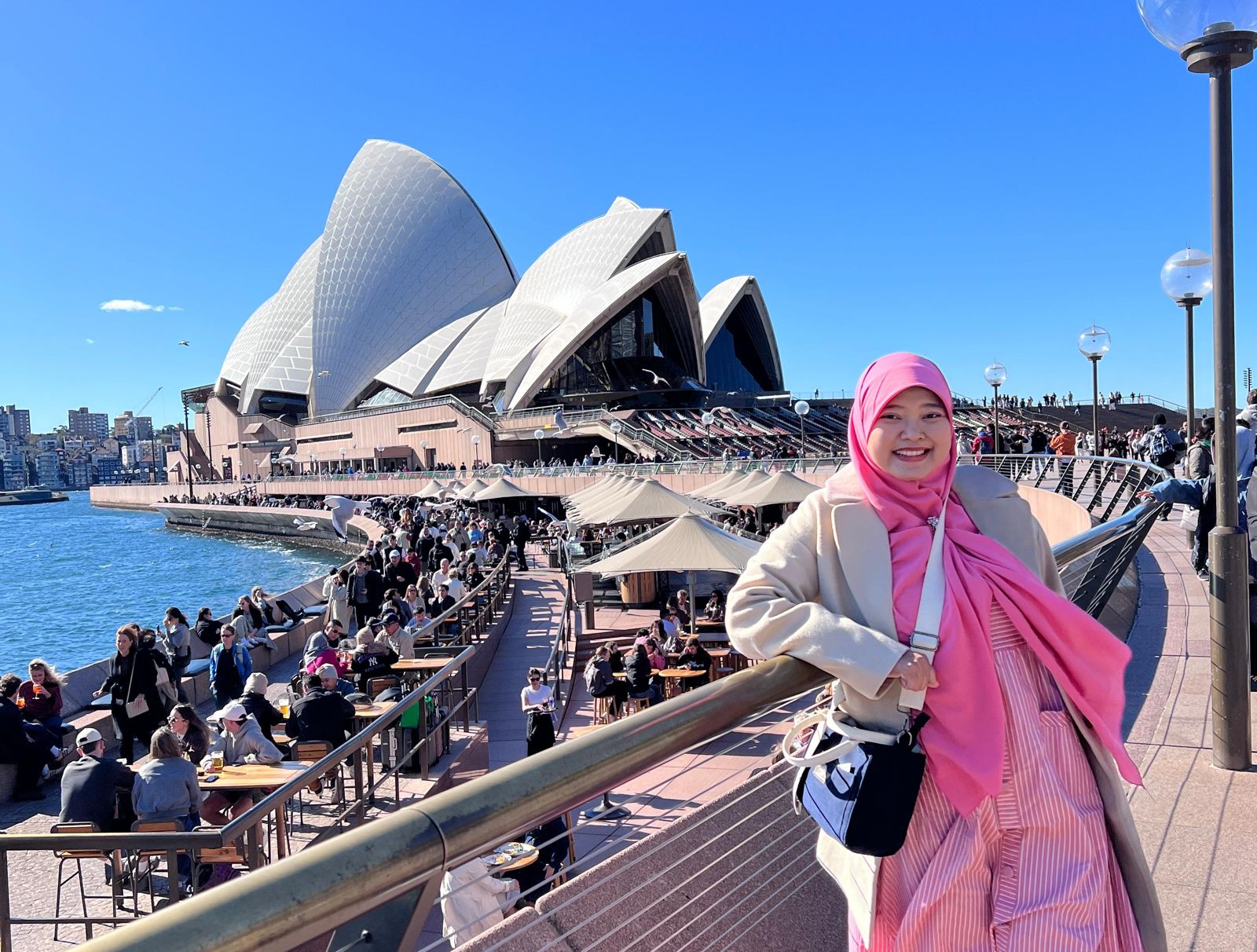
For Faradillah Haryani, pursuing a PhD at UIII’s Faculty of Education been more than an academic journey—it has been a story of growth, perseverance, and global connection. In just two years of her doctoral studies, Faradillah has been blessed to travel to Australia twice, both times fully funded, presenting her research at two of the world’s most prestigious mathematics education conferences.
“I never imagined I would attend the largest conference in mathematics education, meet so many prominent figures, and gain such profound insights as an early researcher,” she recalled with gratitude.
Her first academic adventure took her to Sydney in 2024, where she joined more than 2,000 participants at the 15th International Congress on Mathematical Education (ICME)—the largest gathering of mathematics educators in the world. The experience, she said, was transformative.
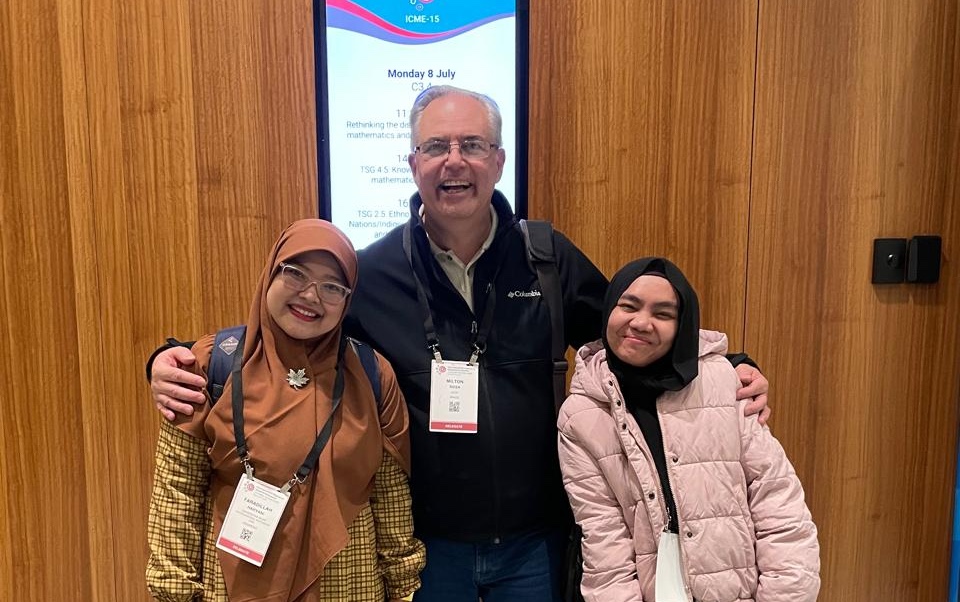 “I began preparing my manuscript during my very first month as a PhD student at UIII. The process took almost a year—from drafting to securing funding. Alhamdulillah, both my applications for the ICME Solidarity Fund and the UIII Conference Grant were accepted,” she said.
“I began preparing my manuscript during my very first month as a PhD student at UIII. The process took almost a year—from drafting to securing funding. Alhamdulillah, both my applications for the ICME Solidarity Fund and the UIII Conference Grant were accepted,” she said.
Out of 2,065 speakers, only 197 were awarded the Solidarity Fund, and Faradillah was one of them. For her, the experience was not merely about presenting research—it was about discovering how global conversations in education can challenge, inspire, and reshape local perspectives.
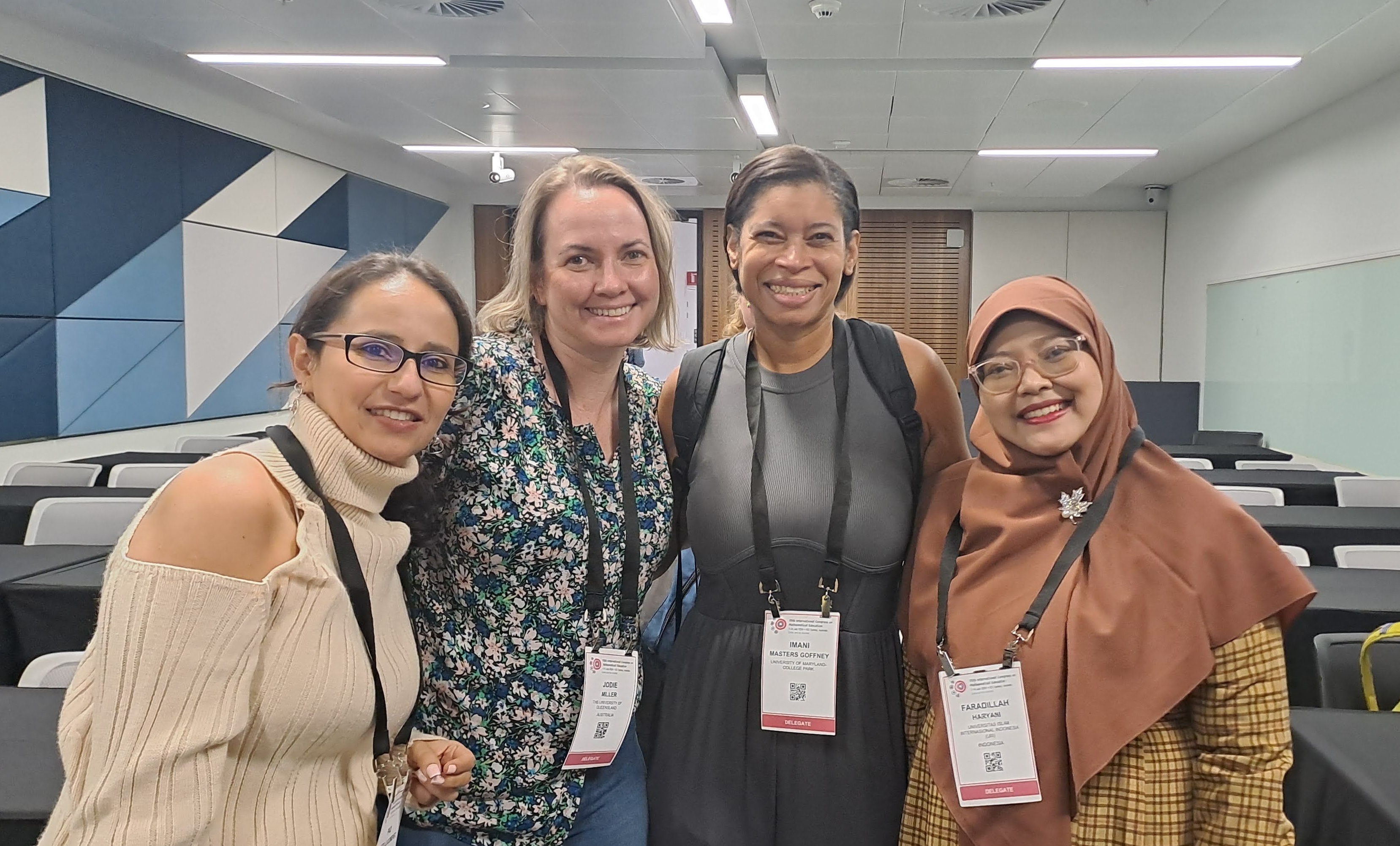 “The conference made me reflect deeply on one question: Whose knowledge are we teaching, and is it relevant to every context? It reminded me of the need to value local wisdom and integrate it with global insights.”
“The conference made me reflect deeply on one question: Whose knowledge are we teaching, and is it relevant to every context? It reminded me of the need to value local wisdom and integrate it with global insights.”
At ICME, Faradillah also connected with renowned scholars, including professors from the University of Auckland, Arizona University, and the Algebra Project in the United States—who shared resources, ideas, and invitations to international research collaborations.
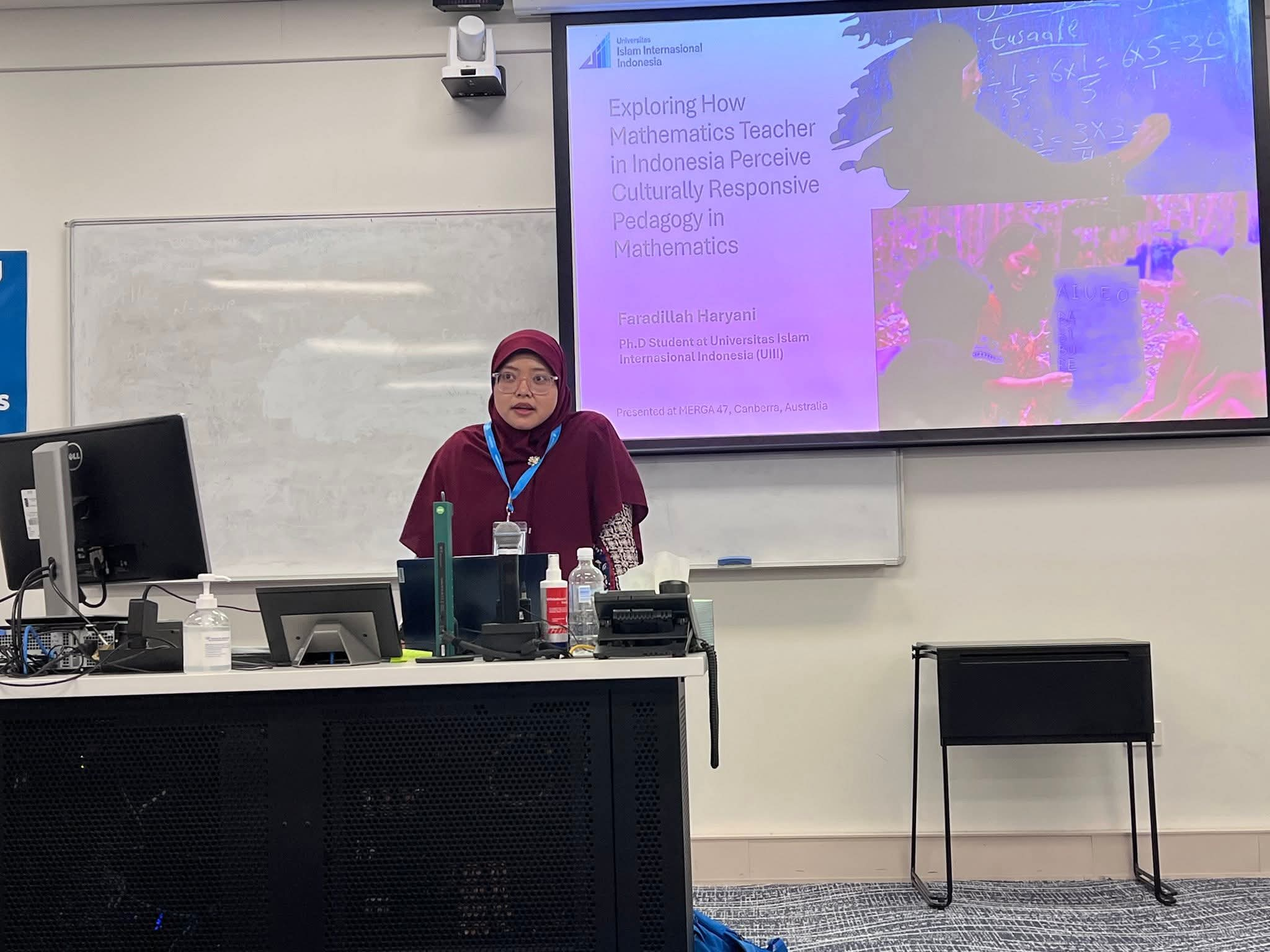 Her second journey came in 2025, when she returned to Australia for the 47th Mathematics Education Research Group of Australasia (MERGA) Conference in Canberra—this time, as an emerging scholar recognized by the international community.
Her second journey came in 2025, when she returned to Australia for the 47th Mathematics Education Research Group of Australasia (MERGA) Conference in Canberra—this time, as an emerging scholar recognized by the international community.
Submitting to MERGA, she explained, was no small feat. Known for its rigorous double-round review process, MERGA’s standard is among the highest in the field. “I started with an early bird submission for early career researchers and received pages of detailed feedback—pointing me to readings I hadn’t considered and urging me to refine my arguments,” she said.
With the guidance of her supervisor, Dr. Destina Wahyu Winarti, Faradillah revised her paper multiple times until it was finally accepted—as a full research paper, MERGA’s most prestigious level of recognition.
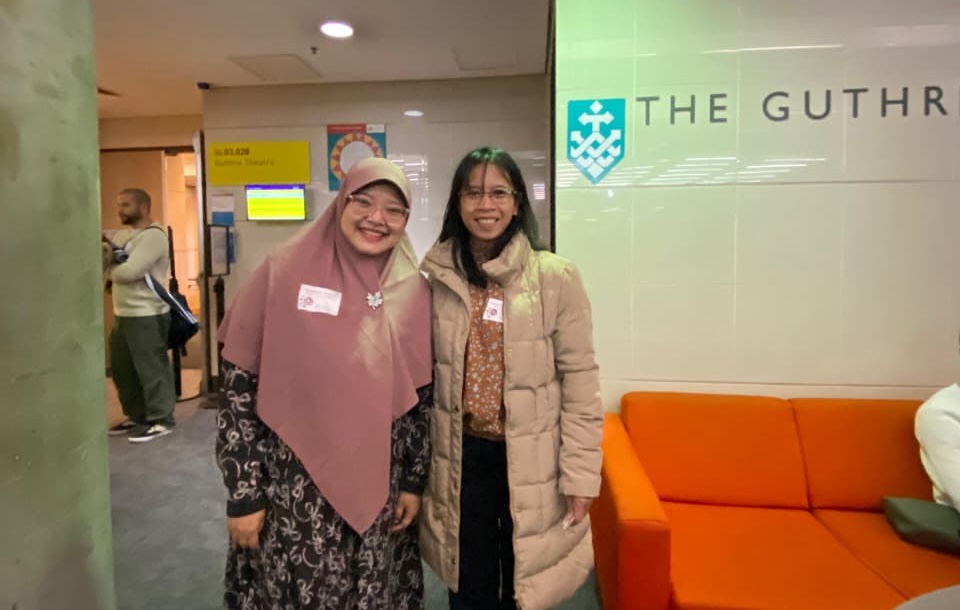 Her efforts did not go unnoticed. She was awarded the MERGA Student Bursary Award, one of only four recipients that year. When her name appeared on the screen during the opening ceremony with the message “Keep your eye on this emerging researcher,” Faradillah could hardly believe it. “It was one of the most humbling moments of my life,” she said.
Her efforts did not go unnoticed. She was awarded the MERGA Student Bursary Award, one of only four recipients that year. When her name appeared on the screen during the opening ceremony with the message “Keep your eye on this emerging researcher,” Faradillah could hardly believe it. “It was one of the most humbling moments of my life,” she said.
Her paper was later selected as one of MERGA 2025 Quick Reads, a collection of the conference’s most highlighted papers, alongside works by plenary speakers and award winners. “It wasn’t just about recognition,” she reflected. “It was about belonging—feeling part of a community that values collaboration over competition.”
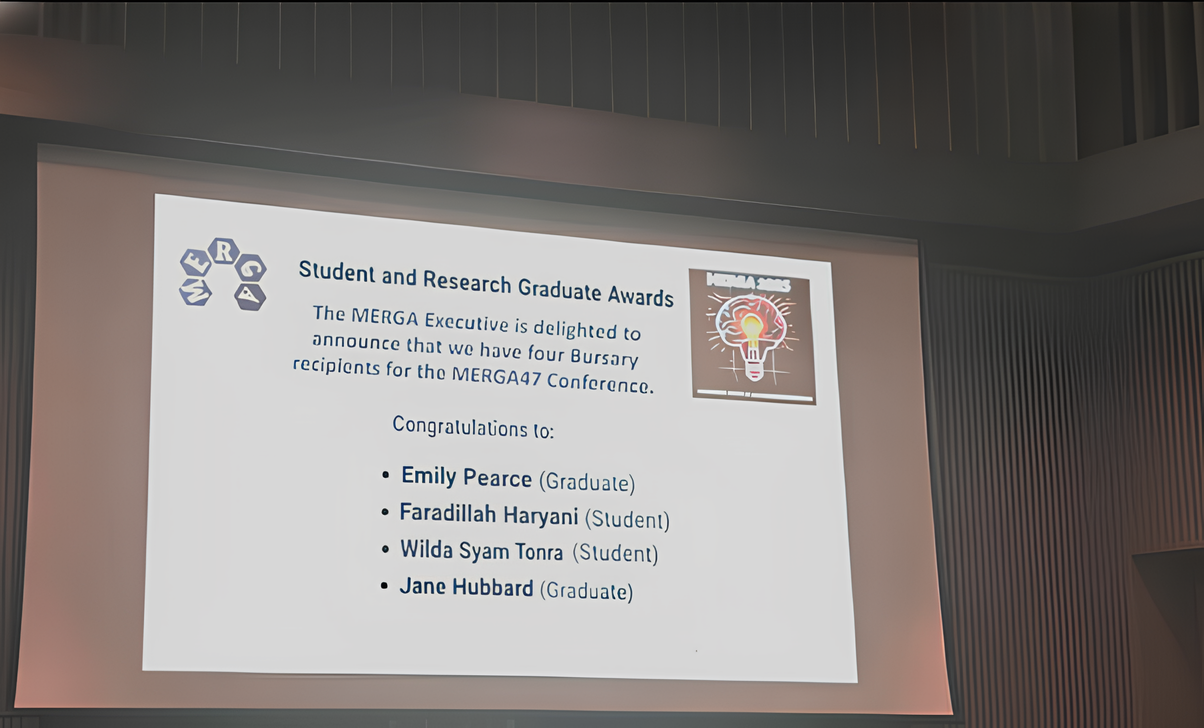 At MERGA, she also met distinguished scholars such as Prof. Kim Beswick, President of ICME 15, and Prof. Kay Owens, a leading figure in ethnomathematics and culturally responsive teaching—both of whom offered invaluable feedback for her dissertation on culturally responsive mathematics education.
At MERGA, she also met distinguished scholars such as Prof. Kim Beswick, President of ICME 15, and Prof. Kay Owens, a leading figure in ethnomathematics and culturally responsive teaching—both of whom offered invaluable feedback for her dissertation on culturally responsive mathematics education.
“From ICME to MERGA, I learned that research is not a lonely path,” she said. “It’s a shared journey across countries and communities, united by the love for learning and teaching.”
Finding the Right Place for a Global Dream
Faradillah was a graduate of University of Birmingham, UK, where she pursued a Master of Science in Mathematic modelling. Her achievements are even more inspiring when you consider her personal circumstances. As a wife and a mother of a five-year-old, pursuing a PhD abroad full-time was not a simple option.
“I chose UIII because I was looking for an international university that feels local,” she said. “Going overseas isn’t always easy when you have a family. But at UIII, I found the same global exposure I had dreamed of—right here in Indonesia.”
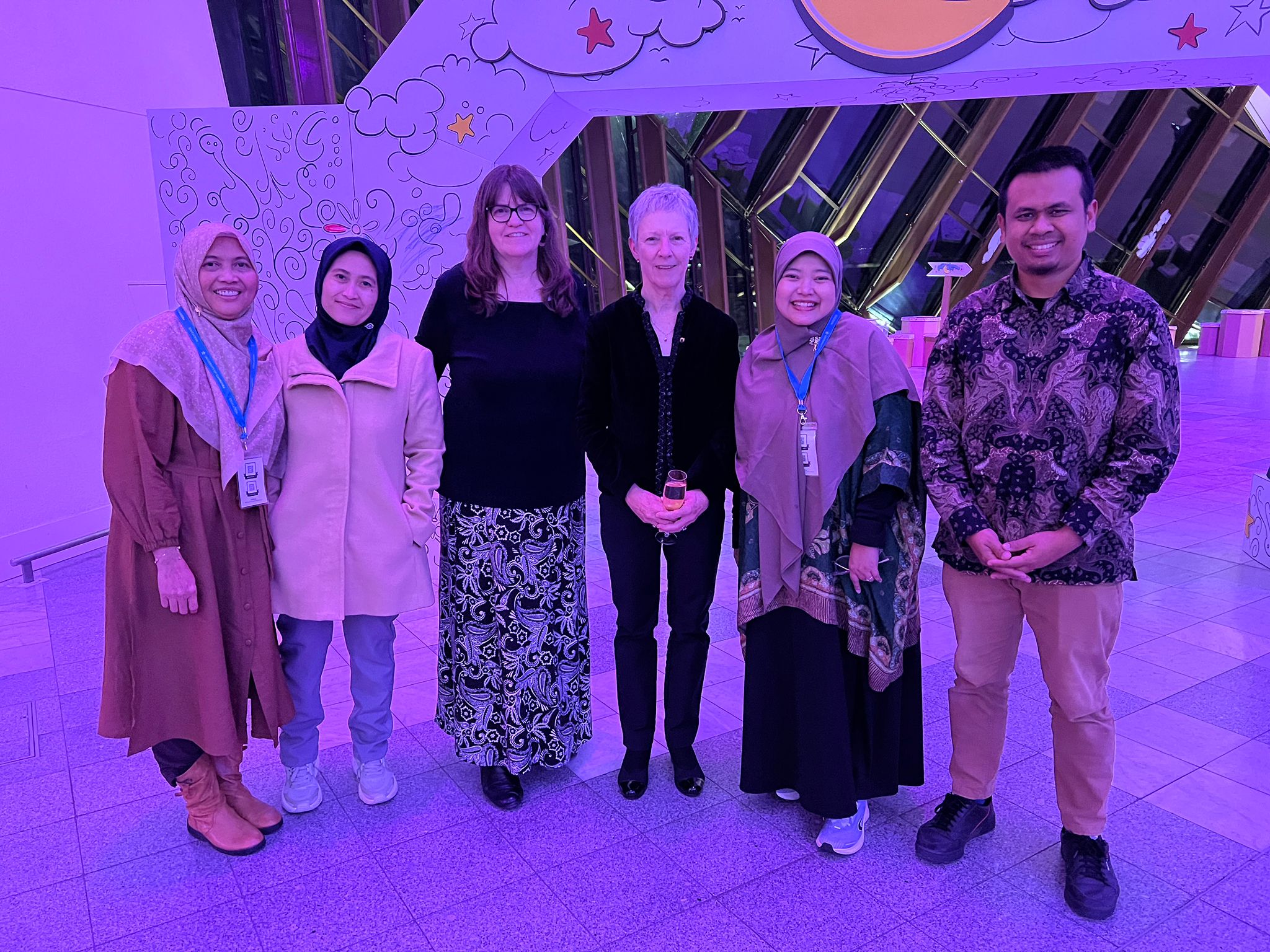 She was particularly drawn to the university’s international faculty, global conferences, and research collaborations. “When I looked at UIII’s academic profile and the backgrounds of its lecturers, I knew this was where I wanted to grow. The international environment here truly prepares us to engage globally.”
She was particularly drawn to the university’s international faculty, global conferences, and research collaborations. “When I looked at UIII’s academic profile and the backgrounds of its lecturers, I knew this was where I wanted to grow. The international environment here truly prepares us to engage globally.”
Looking back, Faradillah offers a heartfelt message to fellow early-career researchers: “Don’t fear feedback. Don’t fear rejection. Keep writing, keep submitting, keep learning. You never know which door will open when you dare to knock.”
Her story is a testament to the transformative power of perseverance, mentorship, and faith. From Depok to Sydney to Canberra, Faradillah Haryani stands as a shining example of how UIII is nurturing scholars who bridge Indonesia to the world—one research paper at a time.
Universitas Islam Internasional Indonesia